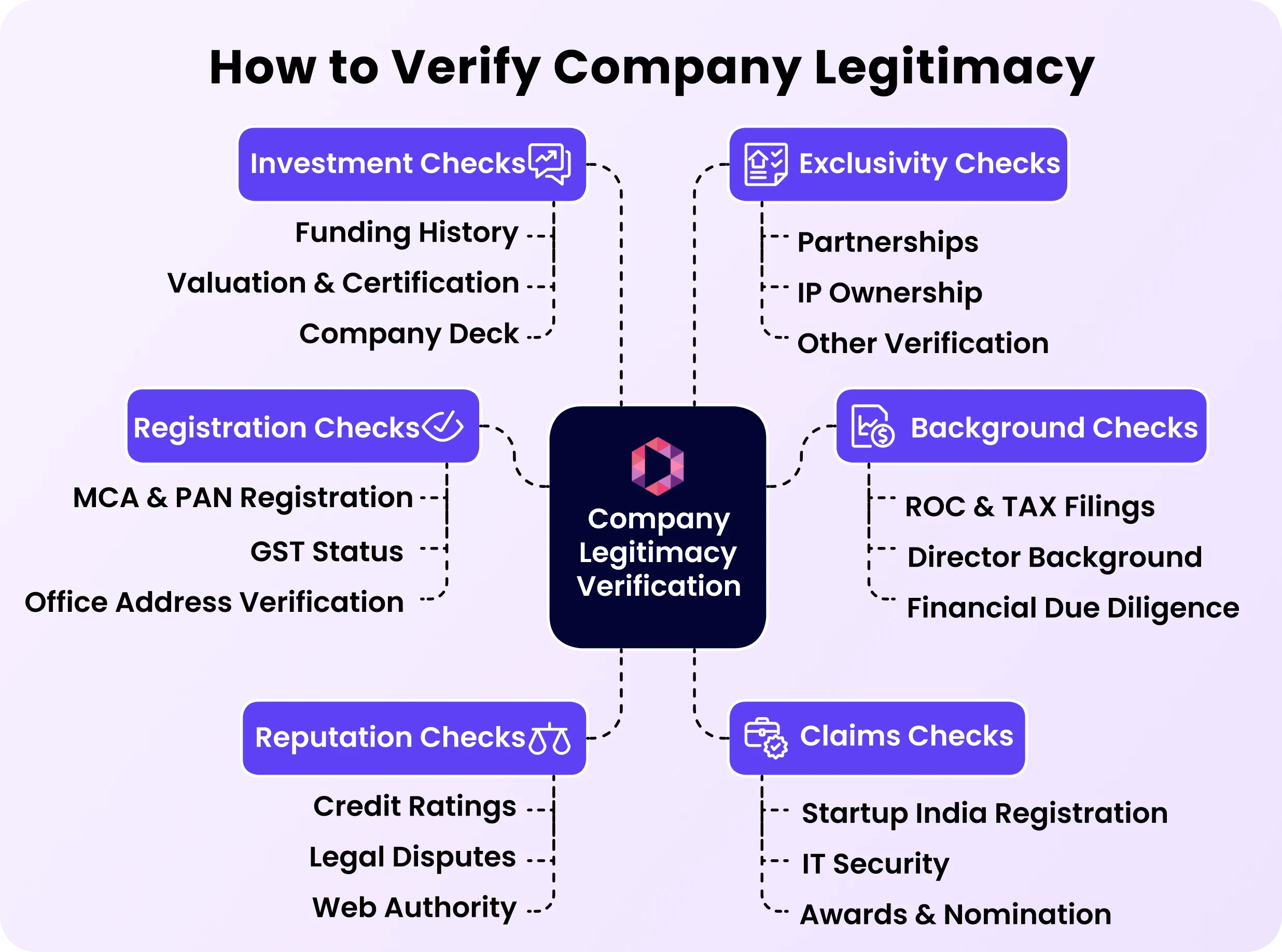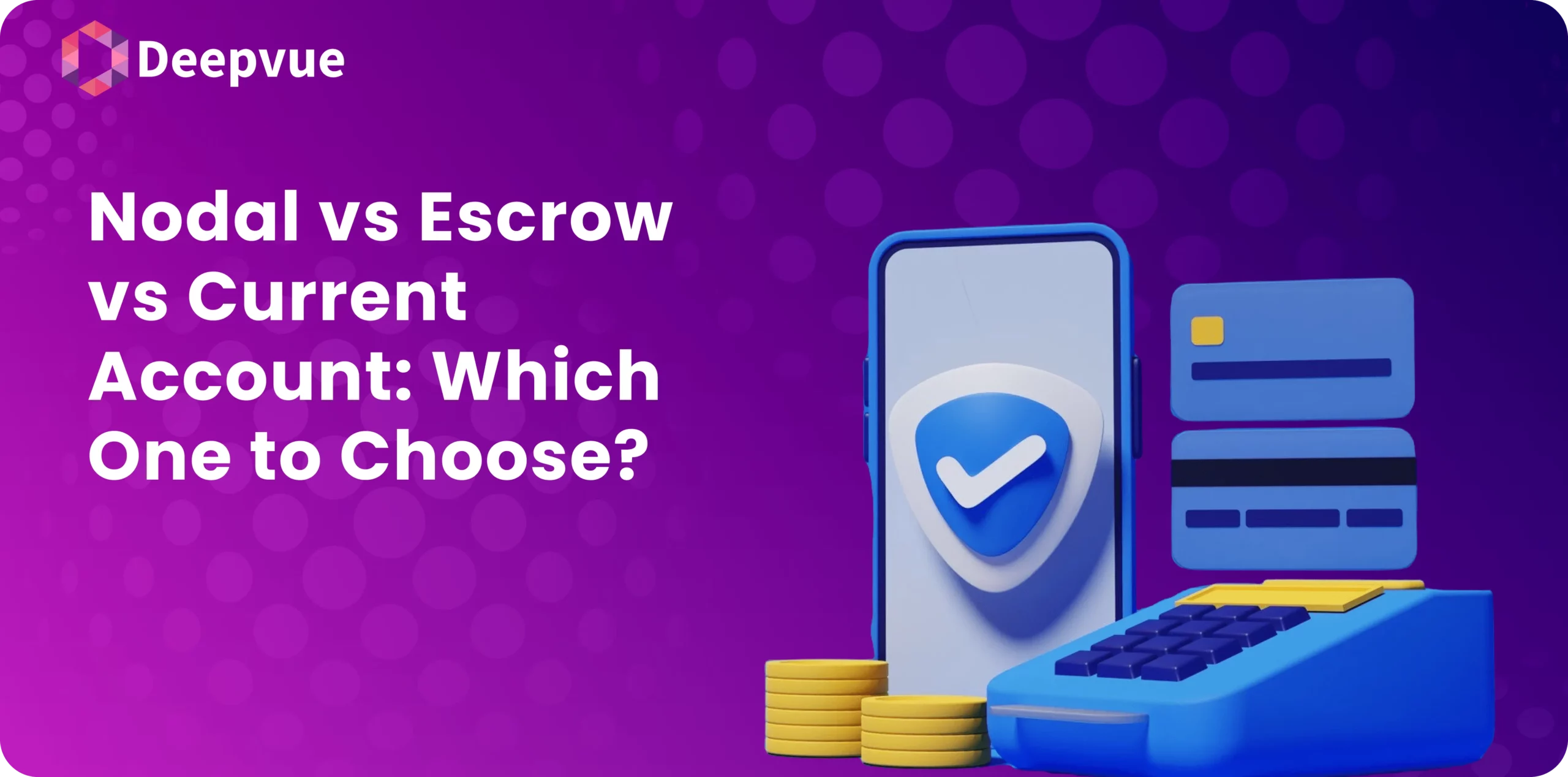Fraudsters employ multiple innovative tools to carry out scams that are progressively more complex. This makes it very difficult to differentiate between a genuine business and a phony business. To prevent such mishaps, every business needs to conduct a thorough business verification check before starting to work with them. Collaborating with a fraudulent company can also be detrimental to the reputation of your brand. This way, you will not only lose your devoted customers but also your credibility.
How to check if a company is legit? As a part of the risk-mitigation strategy, business verification will check and verify the authenticity of the company. KYB is an essential practice that every business should carry out to mitigate fraud risks. In this blog, we will talk about how to check if a company is legit and the various methods we can employ to combat fraud.
Understand the Importance of Business Verification
The overarching purpose of business verification is to ensure the company is legitimate before engaging in financial transactions or partnerships. As a part of the onboarding or ongoing relationship management process, businesses need to do business verification to gauge the level of risks associated with working with another company. The point of business verification is to confirm and validate information of other businesses. Additionally, it also verifies whether the company or its owners are involved in financial crime.
The process of Know Your Business (KYB) and business verification are almost similar. In the business verification process, the company will examine broadly two types of data. Firstly, they will address concerns regarding the company itself, including its legal status, location, declared business activities, and licensing status. The main objective is to assess risks associated with the company and prevent them. The process also verifies the information provided by the company across official sources to ensure that the owners aren’t giving the wrong impression of the business.
So, how to check if a company is legit? Let’s dive in.
How to Check If a Company is Legit?

- Verify Business Registration
All companies must be registered with the Ministry of Corporate Affairs. You can check the company’s registration details by visiting the MCA website. Search for the company name or its Corporate Identification Number (CIN) to confirm its registration status. If the company is involved in selling goods or services, it should be registered for Goods and Services Tax (GST). You can verify its GST registration using the GST Portal. Every legitimate business should have a Permanent Account Number (PAN), which is issued by the Income Tax Department.
- Review the Company’s Official Website
Certain early warning signs raise questions about the legitimacy of the company. One of which is if you are unable to find any contact number or mail address on the company’s website. This means that contacting the company is not possible, indicating that the business might not be genuine. The fact that it is unplugged is an indication that something is fishy. Regulated entities like RBI and UIDAI mandate that financial institutions and other businesses must submit the following:
- Payment methods accepted by the company
- The objective of commercial dealings and commerce
- Location of the company
- Types of business offering
- Certifications and partnerships of the company
- Analyze Company Address Information
To conceal oneself from authorities and to launder money, many companies use bogus office addresses. To refrain from address fraud, it is important to look up the address information on the company’s website. Ensure that the address provided on the company’s website matches the address on official documents, such as registration records or business licenses. In case, there is no mention of any physical address, then it will immediately serve as a warning sign. For the best case scenario, you can contact the company and ask for the address, landmark, etc, and verify the same either through Google Maps or a physical visit. This way, you can easily determine if the description provided corresponds with the actual location.
- Investigate Privacy Policies
A legit company will have a privacy policy, which not only addresses the terms and conditions but also the registered name and address of the company. Businesses need to check for the privacy policy and thoroughly go through the policy to check for any questionable language. Before starting any kind of business with a company, it is essential to go through the company’s ethical history, team members, photos of the team and office. It is imperative to raise a question if the company doesn’t have a proper history.
- Utilize Business Directories for Verification
Look up whether the company is operational using specialized databases, online, tools, and government agencies. This way, it will be easier and save plenty of time to verify whether the company is indeed functional.
- If the company provides financial services then the company must be regulated by the FCA (Financial Services Register). Therefore, their website must be included on the register of the FCA.
- If the company is located in the US and Canada, the company must be added to the website of BBB (Better Business Bureau). The website will provide business reviews and certifications.
- Companies House is a UK government organization that will maintain information on registered firms and assist in the verification of regional business statistics. If the company is doing business with such a company then the database must hold all relevant information about the company.
- Examine Accepted Payment Methods
Businesses need to stay alert and maybe reconsider their decisions if the company accepts cash payment. It is definitely the worst possible scenario. A legitimate company will accept online modes of payment and often offers a money-back guarantee. If a company doesn’t accept any online modes of payment like credit cards, debit cards, etc, then it is a clear indication that the corporation is dubious. It is important to take care when dealing with businesses that require access to your bank details to make significant transactions.
- Gather Feedback and References
Although the website of the company is a good place to start, searching for feedback and other types of customer evaluations can ensure whether a company is legit or not. It is important to spend some time and check out reviews and feedback from other reliable sources to have a proper understanding of the organization. Usually, legit companies put up their client feedback and references on their website, to showcase their grip and reach in the market. Therefore, you can verify these references and feedback by conducting a background check and maybe getting in touch with the person giving the reference, clients, or partners.
- Look for Red Flags in Business Practices
Keeping an eye on the business practices of a company you are willing to work for or are working for is very important. Instead of traditional payment methods, if the company emphasizes making payments through wire transfers, gift cards, cryptocurrency, or peer-to-peer apps, then you need to be cautious. Companies that request to send money to multiple or offshore accounts indicate high fraud risks. Businesses that provide vague information regarding their services, policies, or pricing, often tend to be fraudulent.
Explore Know Your Business (KYB) Verification Solution
Know Your Business (KYB) is one of the most efficient and reliable ways to determine whether or not a firm is legitimate. It is a procedure for verifying the business and its owners. This in-depth due diligence automates the business verification process giving comprehensive information regarding the registration and licenses of the company, financial health, legal history, and social activity. So, how to know if a company is legit?
This given information will be mapped against the official government websites, databases, and credit bureaus. Following this, the system will verify the identity of the company’s Ultimate Beneficial Owners (UBOs). This is to ensure that the UBOs are legit and are not involved in any fraudulent activity. To determine whether it is safe to conduct business with the company, the system will generate risk profiles of every organization or client associated with that company.
Concluding Thoughts on Business Verification
Doing online business is an uphill battle as there is a possibility of being a victim of fraud. And this is a situation that nobody wants to face. Due diligence is of utmost importance in knowing why phony firms or shell companies exist. Business verification is one of the most thorough and accurate types of verification. DIligently adding the business verification before onboarding new partner or clients will ensure companies are dealing with trustworthy and compliant businesses.
Deepvue.tech provides business verification API, making onboarding businesses quick and accurate. With our automated verification process, businesses can verify details related to incorporation, tax registration, directors, financial statements, and more.
FAQs
What is the function of business licenses in verification?
A business license verifies that a company is legally established to conduct business in its business or location. You may ask for a copy from the company or check with local government authorities.
Why is it important to verify a company’s legitimacy?
Verification of a company guarantees that you are working with a valid business, avoiding scams, fraud, and loss of money. It also enables you to establish trust before conducting transactions.
How do I verify if a business is registered legally?
You can find out if a business is registered on government websites such as the SEC (Securities and Exchange Commission), Companies House (UK), or the IRS (USA). Official databases in most countries provide a means to search for registered businesses.
How can I confirm if a company has legal disputes?
Look for the name of the company in legal databases, court cases, or websites of regulatory agencies. If a business is subject to active lawsuits or fraud charges, it’s a warning sign.
What is Know Your Business (KYB) Verification?
Know Your Business (KYB) verification is a system employed by businesses to confirm the authenticity of other companies before doing business, financial transactions, or business partnerships. It is a process of verifying a company’s registration information, ownership structure, books of accounts, and compliance status to avoid fraud, money laundering, and illegal practices.








